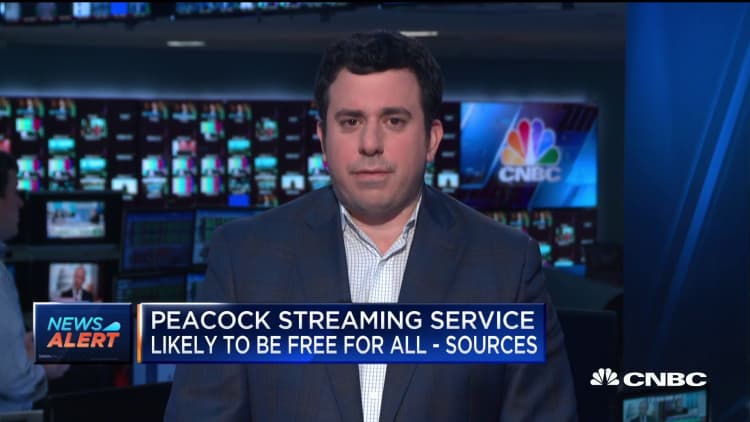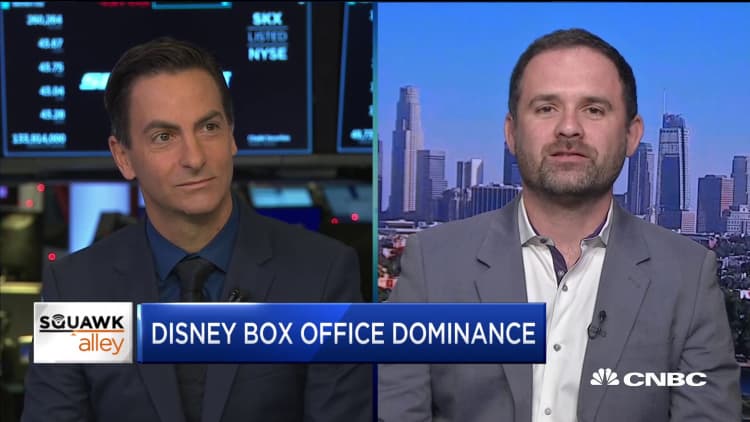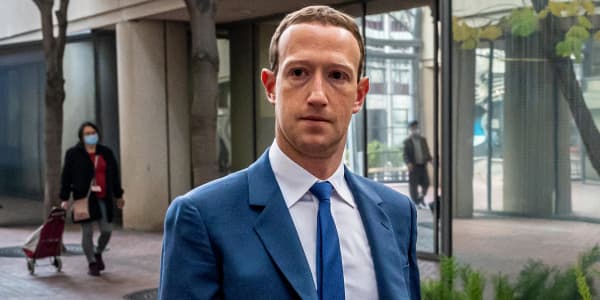The streaming wars are poised to heat up in a big way in 2020, but that doesn't mean consumers are jazzed to open up their wallets for them.
HBO Max is scheduled to launch in May, following the recent debuts of Disney+ and Apple TV+, all with a plan to take on Netflix, Hulu and Amazon Prime Video in the battle for the over-the-top viewers and cord cutters. Based on consumer preferences, it's looking like a tough market.
According to a survey from ad tech company The Trade Desk and YouGov published Monday, 59% of Americans aren't willing to pay more than $20 a month for streaming TV services, while three-quarters said they wouldn't exceed $30. Netflix, the market leader with 60 million U.S. members, already charges $13 a month for its standard subscription. The Trade Desk survey included more than 2,600 U.S. consumers.
"It's kind of like a lot of consumers have hit the reset button on pricing," Brian Stempeck, The Trade Desk's chief strategy officer, said in an interview. He likened the evolution to what happened in music, when consumers went from buying CDs and then downloads to paying $10 a month to stream everything. "I think the same thing is happening here," Stempeck said.
Unlike with digital music, many movies and TV shows have exclusive deals with a particular streaming service, forcing the various distributors to bid up for the rights to the content that's most desired. To make money from streaming viewers, those companies have to either charge monthly subscriptions or provide ad-supported content or offer some combination of the two like Hulu and the upcoming Peacock from NBCUniversal.

The Trade Desk survey found that 53% of U.S. consumers would be more open to watching ads on every other episode of a show if it meant lowering the cost of their streaming bill and that 68% would be willing to watch ads relevant to their interests in order to watch fewer ads overall.
Jim Nail, a principal analyst at Forrester, describes the bind that media companies are in as they try to stay relevant and turn a profit in a world of streaming.
"Every survey I've ever seen in the industry shows that consumers hate ads," Nail said. "But consumers hate spending money out of their own pocket more than they hate ads. So when the option comes up, a lot of people will opt for the ad-supported versions."
'Subscription fatigue'
Some analysts see Netflix at risk as more pay options hit the market. Needham's Laura Martin published a note for clients last month, predicting that Netflix could lose 4 million U.S. subscribers in 2020, amid lower-priced competition from Apple and Disney. But Netflix has a huge head start over its rivals, which propelled the stock to a more than 4,000% return last decade, topping all other members of the S&P 500.
Competition is coming from more places than ever. The top networks are mostly selling subscriptions to over-the-top services, whether it's ESPN+ for $5 a month, Disney+ for at $7 or Showtime for $11. Disney, which owns ESPN and most of Hulu, offers a package of the three streaming services for $13. Amazon sells Prime Video for $9 a month, but the broader Amazon Prime membership includes much of that content while other shows can be rented or purchased individually.
Meanwhile, there are ad-supported services like Tubi, Crackle and Plex as well as the Roku Channel, all offering a limited set of shows and movies.
Parks Associates, a research firm that tracks the connected home, found in a recent survey that one-third of U.S. broadband households use a free, ad-based streaming service, up from 24% a year earlier.
"Consumers are turning to ad-supported streaming services as subscription fatigue continues to settle in," Brandon Riney, a researcher at Parks, told CNBC in an email. "When discussing attitudes regarding ads on these streaming services, more consumers are willing to endure the ads to watch the content than completely resisting them."
According to Nail, families living on a tight budget are "much more likely to opt for a free ad-supported service."
The problem is that the ad experience on streaming is still subpar, with consumers bemoaning how frequently they see the same ad.
"Once they've had a taste of Netflix, it's difficult to go back" to watching content with a high number of ads, said Stempeck. "I don't think anyone is saying that the ad-funded world of television is going away, it does have to change."
Stempeck said that services like Disney might end up adding new tiers for people who don't want to pay for subscriptions or who might want to just watch the content occasionally. What's becoming clear is that whether it's for subscription services or ad-based offerings, companies are going to have to step up the quality and stay focused on price to manage an increasingly convoluted market.
"As the purse strings of OTT consumers tighten, there is tremendous opportunity for free ad-based services to thrive," wrote Steve Nason, an analyst at Parks Associates, in a post in November. "A service can establish a foothold in this space by delivering a unique offering of high-quality content in an engaging advertising-based environment."
Disclosure: Comcast is the parent company of NBCUniversal, which owns CNBC.






